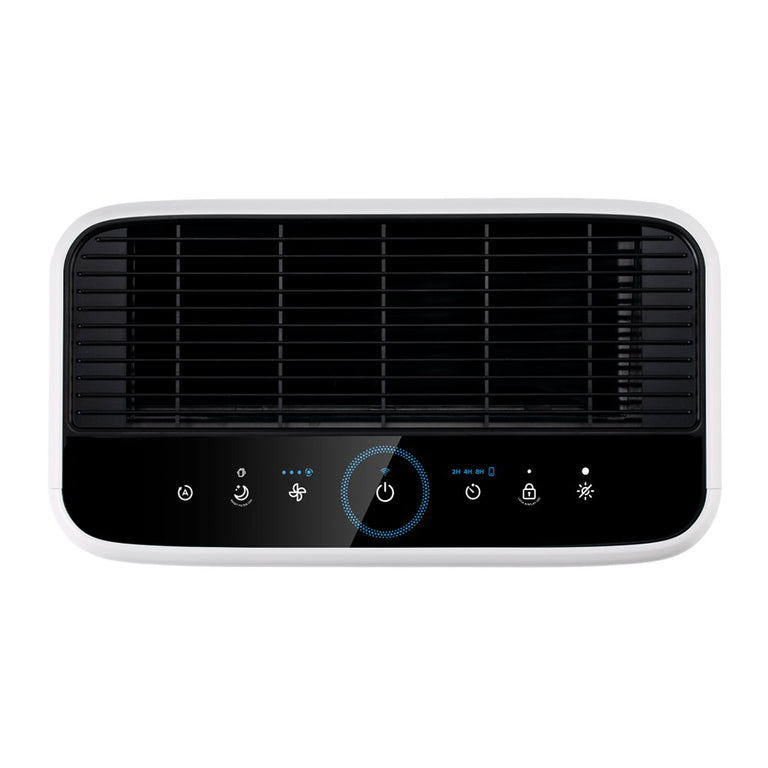
What are VOCs?
-
1 min read
Sometimes we can see what’s affecting our air quality. Floating fibers caught in light, dust coming off old furniture. But most times, we can’t. Some of the most common invisible pollutants are called volatile organic compounds or VOCs. What are they and how do they affect us?
What are VOCs?
VOCs are classified by the United States Environmental Protection Agency as “any compound of carbon, excluding carbon monoxide, carbon dioxide, carbonic acid, metallic carbides or carbonates and ammonium carbonate, which participates in atmospheric photochemical reactions.”
In other words, they are compounds which contribute to the formation of ozone. They vaporize quickly at room temperature and therefore go unseen. However, we can smell them most of the time.
A few examples include formaldehyde, d-Limonene, toluene, acetone, ethanol, and hexanal. We find them in things like:
-
Aerosol sprays
-
Cleaning products
-
Furniture polish
-
Nail polish remover
-
Paint & paint solvent
-
Gasoline
-
Fuel
The list goes on.
How do VOCs affect our health?

The average person doesn’t run into dangerous levels of VOCs in their daily life. However, they can still cause a lot of discomfort and flu-like symptoms. Most of us probably get headaches when we paint large areas, especially in closed rooms with poor air circulation. Or maybe you get a cough and sore throat while you’re using chemical products for spring cleaning. Other side effects of VOCs include nausea, difficulty breathing, dizziness, skin irritation, and even fatigue.
When these symptoms happen, it can be hard to focus on the task at hand, get a good night’s sleep, and enjoy our usual activities. For those with pre-existing respiratory conditions, they can be even more disruptive.
How do we remove VOCs?
Many products that contain VOCs are hard to avoid, but that doesn't mean we can’t avoid the VOCs themselves. Air purifiers with high amounts of activated carbon can filter VOCs well, reducing our contact with them and their accompanying symptoms.
One of our best VOC-filtering air purifiers for large spaces is the Levoit Core® 600S Smart Air Purifier. Featuring a Custom High-Efficiency Activated Carbon Filter, it can filter all the VOCs we mentioned, as well as break down trapped molecules with our custom ARC Formula™ to prevent secondhand pollution.
Its high Clean Air Delivery Rate (CADR) of 410 CFM means the Core 600S can filter a 635 ft² room 5x per hour. That means if you’re cleaning a 400 ft² open floor plan—spraying aerosols, kicking up dust, polishing furniture—it would completely change the air in just 8 minutes, helping to reduce and minimize symptoms caused by VOCs and other allergens.

Removing pollutants creates a healthy space for you to come home to at the end of the day. Peace of mind is important in wellness, and it’s easier to have when your home’s air quality is protected.
Sources:
Featured Products
-
NewModel: LAP-C601S-WUSRegular price $299.99Unit price perRegular price
$299.99$299.99- New
- Smart
- Large rooms
-
Sold OutModel: Core 400SRegular price $219.99Unit price perRegular price
$219.99$219.99- Smart
- Large rooms
-
Sold OutModel: Core 200SRegular price $74.99Unit price perRegular price
$89.99$74.99- Smart
- Small rooms
-
15% offModel: LAP-V201S-WUS
- New
- Smart
- Large rooms










